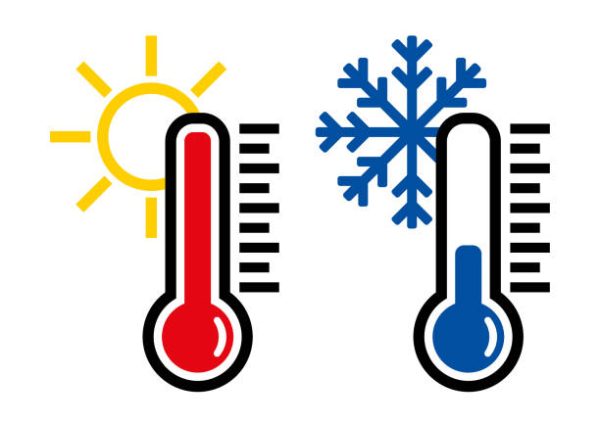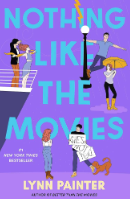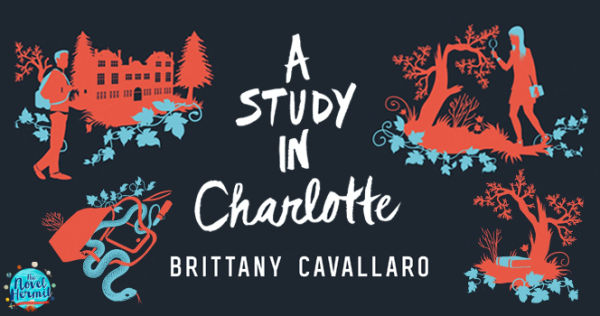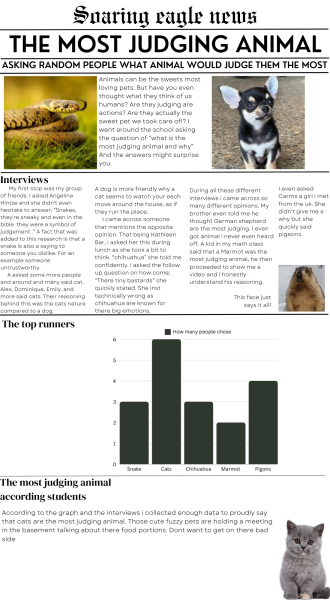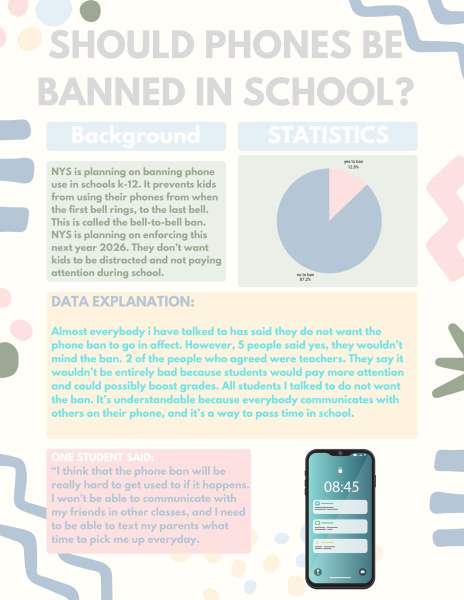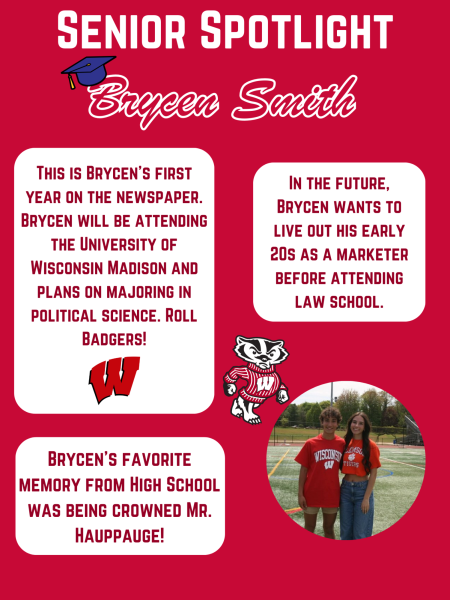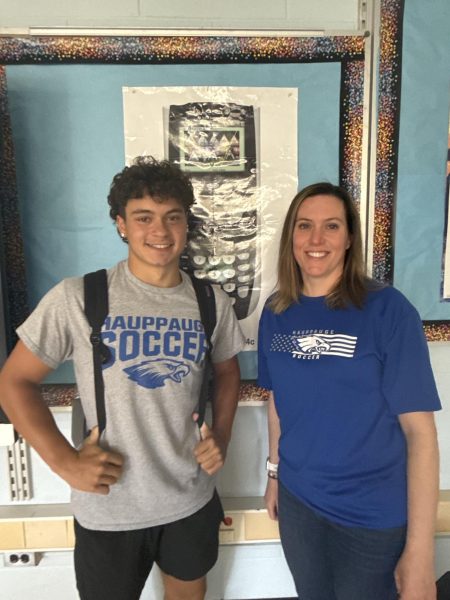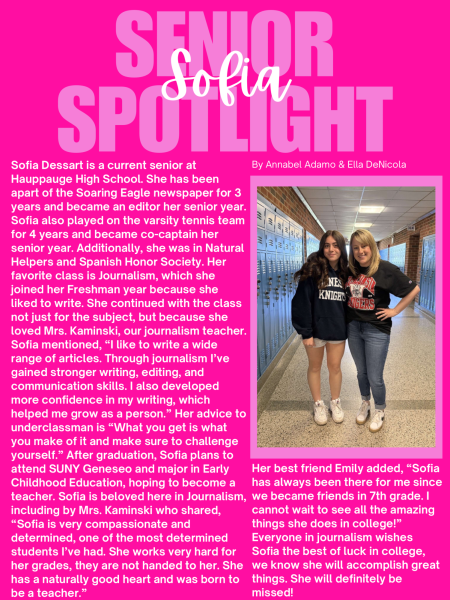Why Teens Don’t Want to Read

Among teenagers, reading is a controversial topic. Some swear that it’s the only thing that keeps them sane, some that it’s what’s making them lose their minds, and others couldn’t care less. But nothing binds high schoolers together more than their required reading; the too long or too short, too plain or too confusing, too old or too futuristic books that are pushed on us by teachers whose pages hold not only their stories but our grades.
It is, at this point in an article, most authors analyze what books students enjoy reading, explain the necessary techniques needed to get them intrigued, criticize the youth for “forgetting the value of a written word,” or point out the current flaws in America’s literary education. But through several interviews, I have come to the conclusion that none of this is necessary. Because there is one reason kids don’t like reading, one thing needed to get them interested in books, one thing that makes them value the written word, and it all ties into the painful flaw within American literary education. You see, over the course of 15 interviews from different Hauppauge students of varying grades and ages, one word was repeated 11 times.
 Boredom is the root of all engagement issues in school: the main reason kids don’t pay attention or don’t get good grades. But there are ways to make reading less boring. Most high schoolers aren’t bored because they don’t understand the required reading, but because they don’t relate to the subjects. Hauppauge Junior Alexa Ingrassia explained that when she was assigned The Pearl by John Steinbeck in eighth grade, she didn’t have a problem reading it, but “it kind of felt like it was all filler and that there wasn’t any storyline.” Many books with historical, political, and philosophical relevance are taught in high school classes, and the deeper meanings they contain don’t escape students. For example, Isabella Calvao didn’t like 1984, even though she “recognize[s] that it’s an important novel.” Rather, students appreciate the themes but have trouble following uninteresting storylines. Freshman Mahrukh Rana feels that “finds them [school assigned books] boring because sometimes they’re a bit outdated and old.” This is she thinks the worst book she had to read in school was “every book we read.”
Boredom is the root of all engagement issues in school: the main reason kids don’t pay attention or don’t get good grades. But there are ways to make reading less boring. Most high schoolers aren’t bored because they don’t understand the required reading, but because they don’t relate to the subjects. Hauppauge Junior Alexa Ingrassia explained that when she was assigned The Pearl by John Steinbeck in eighth grade, she didn’t have a problem reading it, but “it kind of felt like it was all filler and that there wasn’t any storyline.” Many books with historical, political, and philosophical relevance are taught in high school classes, and the deeper meanings they contain don’t escape students. For example, Isabella Calvao didn’t like 1984, even though she “recognize[s] that it’s an important novel.” Rather, students appreciate the themes but have trouble following uninteresting storylines. Freshman Mahrukh Rana feels that “finds them [school assigned books] boring because sometimes they’re a bit outdated and old.” This is she thinks the worst book she had to read in school was “every book we read.”
 This leads into one of the major issues pertaining to school readings is the preservation of “classic” literature. Books that were once political shockers and social controversies are now mostly irrelevant. What was once a new and inventive idea is now a tired format or overused tropes predictable by the genre. To keep new generations reading, you need to apply them with new books. An anonymous sophmore was annoyed by his French class’s assigned reading because it’s the cliche plot “has been copied and pasted a thousand times.” In addition to the tired storylines, many older books have bigoted themes that ruin them for students. Sometimes it is important to include bigotry in books to teach students a lesson about prejudice or closed minded-ness, like in To Kill A Mockingbird, which William Macintosh says was his favorite book because of
This leads into one of the major issues pertaining to school readings is the preservation of “classic” literature. Books that were once political shockers and social controversies are now mostly irrelevant. What was once a new and inventive idea is now a tired format or overused tropes predictable by the genre. To keep new generations reading, you need to apply them with new books. An anonymous sophmore was annoyed by his French class’s assigned reading because it’s the cliche plot “has been copied and pasted a thousand times.” In addition to the tired storylines, many older books have bigoted themes that ruin them for students. Sometimes it is important to include bigotry in books to teach students a lesson about prejudice or closed minded-ness, like in To Kill A Mockingbird, which William Macintosh says was his favorite book because of 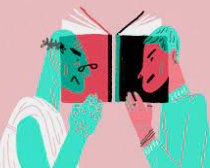 its “lessons about race and society.” But other times, it’s unnecessary and makes students uncomfortable. Senior Amanda Williamson affirmed that 1984 was the worst book she ever had to read in class because “the characterization of Julia was kind of misogynistic and sexist in a way. They didn’t really give her a personality. George Orwell really elaborated on the thoughts of the character [Winston], and the character’s thoughts were just extremely misogynistic.” While issues like misogyny were common in the past and don’t erase a book’s relevance, they do tend to soil the book’s legacy. In an age where the internet means we can be more educated and socially aware than ever, people no longer have the patience nor the desire to muscle through narrow-mindedness to reach a book’s end. Thus, a bad taste is put in students’ mouths, and they simply don’t want to read anymore.
its “lessons about race and society.” But other times, it’s unnecessary and makes students uncomfortable. Senior Amanda Williamson affirmed that 1984 was the worst book she ever had to read in class because “the characterization of Julia was kind of misogynistic and sexist in a way. They didn’t really give her a personality. George Orwell really elaborated on the thoughts of the character [Winston], and the character’s thoughts were just extremely misogynistic.” While issues like misogyny were common in the past and don’t erase a book’s relevance, they do tend to soil the book’s legacy. In an age where the internet means we can be more educated and socially aware than ever, people no longer have the patience nor the desire to muscle through narrow-mindedness to reach a book’s end. Thus, a bad taste is put in students’ mouths, and they simply don’t want to read anymore.
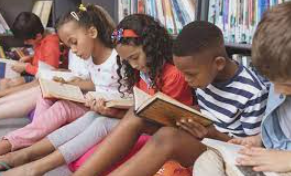 The next step seems abundantly clear; assign books that kids relate to. In the second part of Mahrukh’s interview, she explains that she enjoyed middle school’s independent reading projects (IRPs) “because you can choose your own books, you can choose what you like to read.” To learn proper reading comprehension and analysis, most curriculum center a few required books with clear themes for students to analyze as a group. And while this model seems to work in a broad sense, it isn’t absolute. Hauppauge English teacher Mrs. Scanlon admitted that students “have to read more stuff that applies to them and get the pleasure out of reading, and then they can do the informational reading.” In other words, schools need to cultivate a love of reading before students can begin thinking critically about books. To do this, students must be given more freedom in what they read and discuss in class.
The next step seems abundantly clear; assign books that kids relate to. In the second part of Mahrukh’s interview, she explains that she enjoyed middle school’s independent reading projects (IRPs) “because you can choose your own books, you can choose what you like to read.” To learn proper reading comprehension and analysis, most curriculum center a few required books with clear themes for students to analyze as a group. And while this model seems to work in a broad sense, it isn’t absolute. Hauppauge English teacher Mrs. Scanlon admitted that students “have to read more stuff that applies to them and get the pleasure out of reading, and then they can do the informational reading.” In other words, schools need to cultivate a love of reading before students can begin thinking critically about books. To do this, students must be given more freedom in what they read and discuss in class.
Yet, here we are. Teenagers don’t want to read, teachers forcing them to read; it’s a vicious cycle. But we can work together to change. If students make an effort to grow an appreciation for books outside of class, they may find themselves doing better in school. And if teachers allowed students more choice in what they read, they may get a better response to assignments. Little by little, day by day, if we all put in a bit of effort, maybe the YA genre could make a comeback for high schoolers in Hauppauge. 


